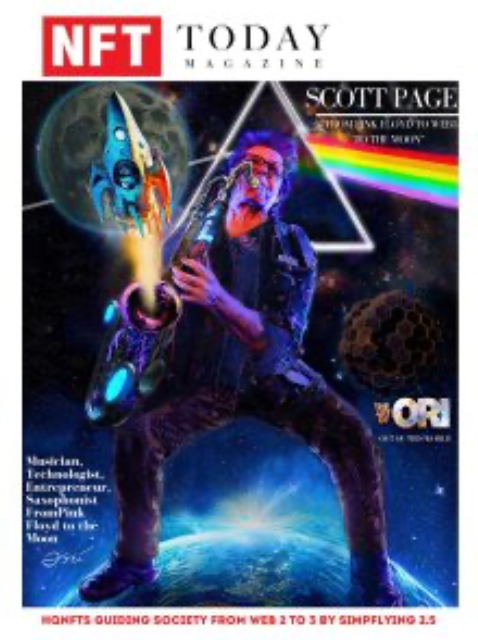Fred Hsu Talks Domain Finance and the Future of the Internet
Staff Writer • 2025-01-04
In a recent episode of Stonks Go Moon, streaming from South Africa to a global audience, Rocco Strydom sat down with Fred Hsu, the CEO and Co-Founder of D3 Global, to discuss the past, present, and future of domain names. From tokenization to the seismic shifts coming to the internet, the conversation offered a masterclass in understanding digital real estate. Vanity or Vision? The $19 Million Chat.com Purchase The episode kicked off with a discussion about Sam Altman’s purchase of Chat.com for a reported $19 million. Strydom raised the question of whether such acquisitions are vanity projects or strategic investments. Hsu, drawing on decades of experience, contextualized the deal: “Compared to other domains that sold for way more, I’d argue Chat.com is relatively cheap. It’s prime real estate in the digital world.” The Genesis of D3 Global Hsu’s journey to founding D3 Global started at an ICANN meeting, the global nonprofit that regulates the internet’s Domain Name System (DNS). “What we noticed,” he explained, “was the emergence of alternative root systems, where extensions like .eth or .e don’t operate in the traditional DNS. That sparked the idea for D3—to bridge this gap and innovate in a space that’s remained largely unchanged for decades.” D3 Global is strategically positioned to capitalize on the upcoming generic top-level domain (gTLD) round, only the second in internet history. These rare opportunities, Hsu noted, are like a “land rush,” with organizations scrambling to stake their claims in the digital frontier. Tokenizing the Internet A significant portion of the conversation delved into domain tokenization. Hsu likened it to existing financial markets: “Just as an ETF represents gold without physically holding bars, a tokenized domain is a non-fungible record on the blockchain representing ownership. This opens up possibilities like leasing, borrowing against domains, or even fractional ownership.” Hsu’s vision for tokenized domains could disrupt traditional monetization models like domain parking, a concept he helped pioneer. “Domains are digital real estate,” he said. “Tokenization introduces liquidity, enabling new use cases and applications.” Partnership with Identity Digital One of D3’s pivotal partnerships is with Identity Digital, which operates extensions like .email, .network, and .finance. “We’re working to tokenize entire namespaces, establishing trust and creating utility,” Hsu explained. “Without trust, these innovations risk being dismissed as Web3 scams.” DomainFi: Financializing Domains Strydom steered the conversation toward the concept of DomainFi, or the financialization of domains. Hsu broke it down: “DomainFi refers to the ability to manage revenue and transactions around domains as an asset class. It’s about creating new revenue streams for owners while opening up access to retail investors.” How Retail Investors Can Participate For listeners eager to get involved, Hsu described D3’s Expression of Interest model. “It’s like claiming a future piece of land,” he said. “For example, if you wanted rocco.doge, you could reserve it now as rocco*doge. When the namespace becomes operational, you’ll own the rights to the real domain.” The Future of Domains and Web3 The episode concluded with a discussion on the difference between Web2 and Web3 domains. “Web2 domains function universally,” Hsu clarified, “while Web3 domains like .eth are alternative identifiers operating outside traditional systems. Our goal is to create interoperability and bring Web3 domains into mainstream relevance.” Final Thoughts Hsu left listeners with a compelling call to action: “The next gTLD round could be a once-in-a-generation opportunity. Whether you’re a retail investor, a corporation, or an innovator, the time to act is now.”
See More Posts
A look at how NFTS, Web 3, Gaming, Cryptocurrencies and Blockchain are reshaping businesses across the globe.
@NFT Today Magazine


